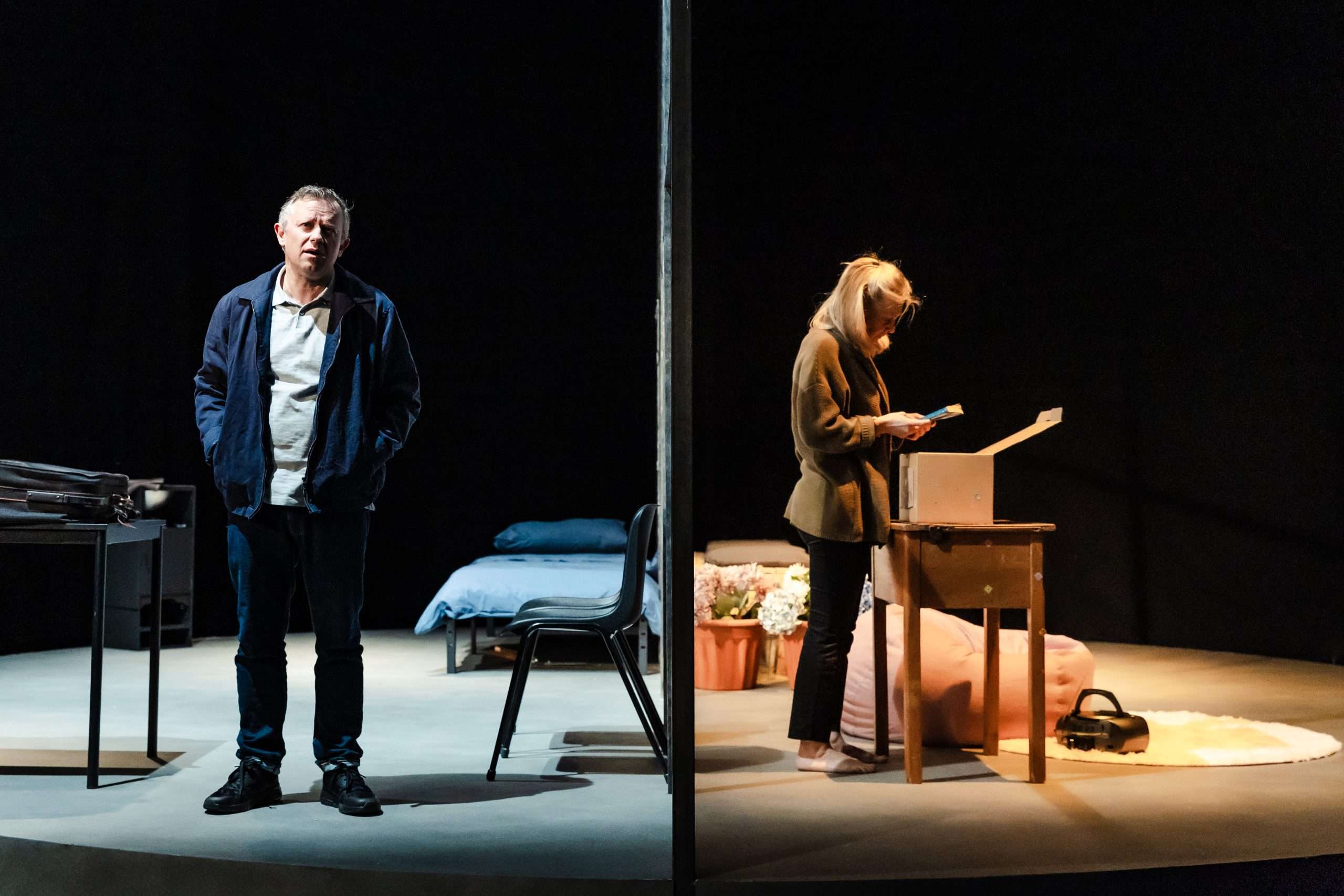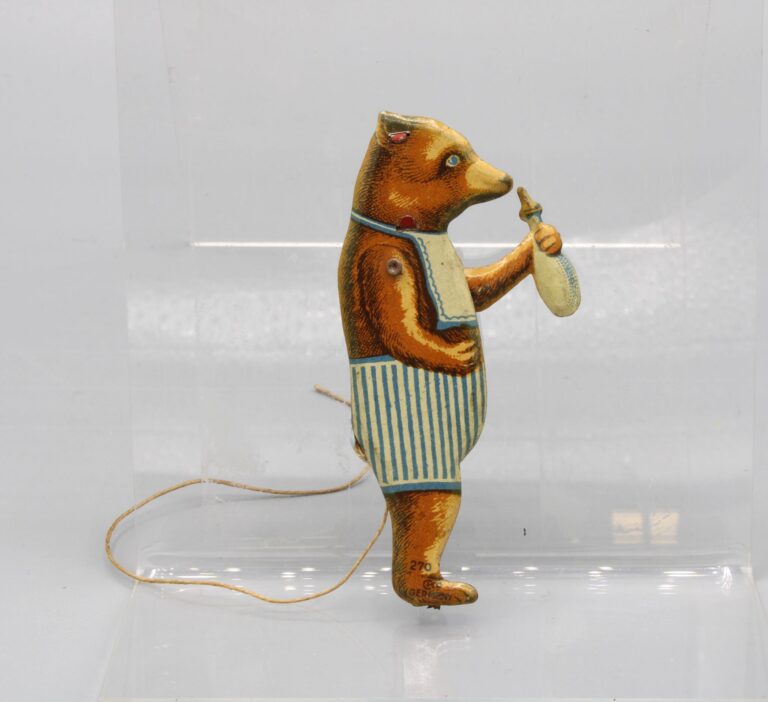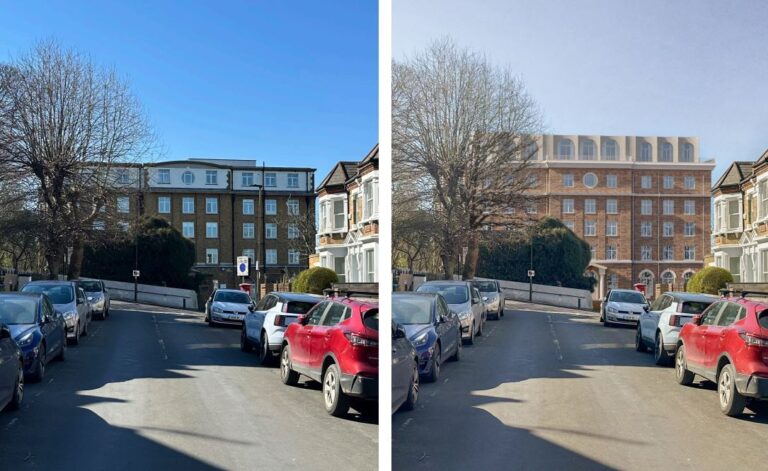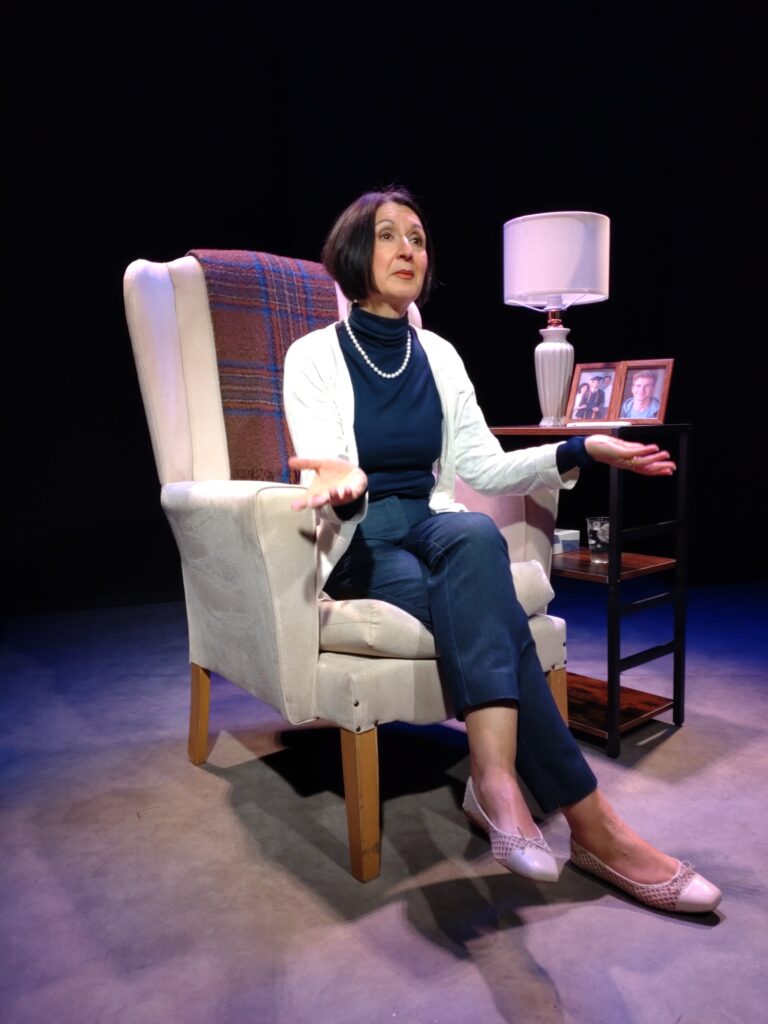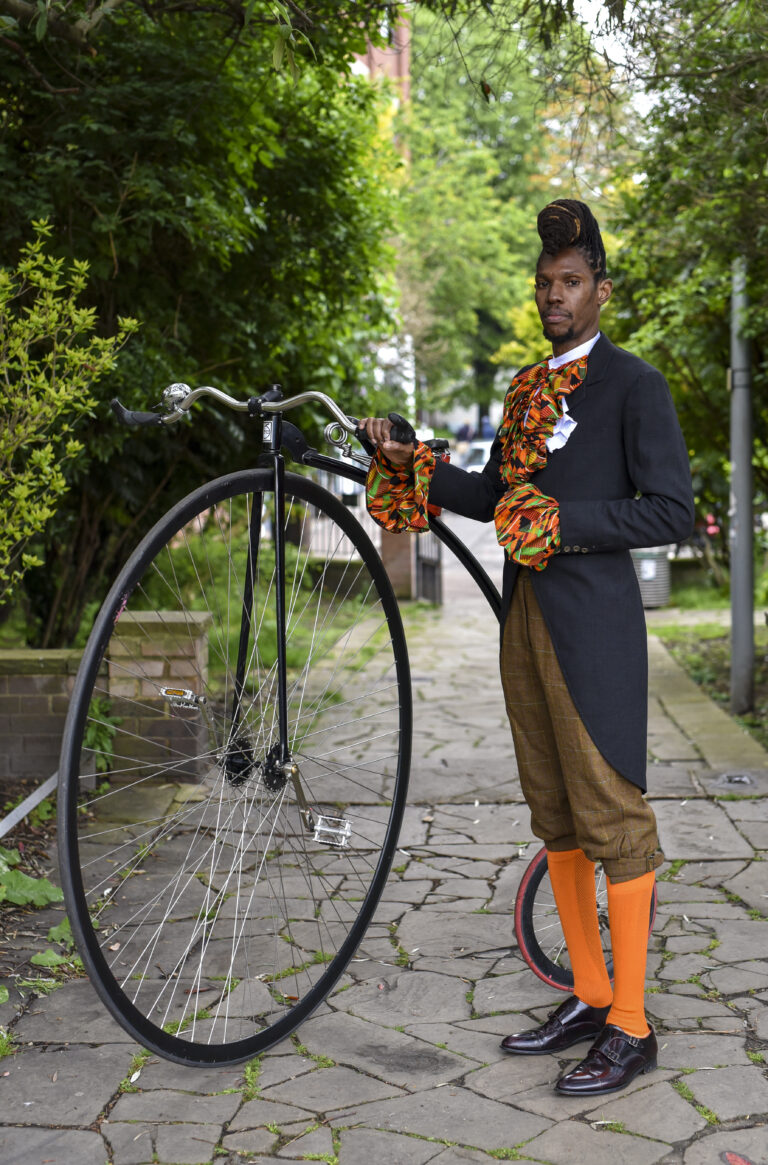‘An intense, important play but punctuated by humour and a lot of tenderness’
The fine line separating victim and perpetrator has become a hallmark of many crime dramas or stories of crime. Think ITV’s Des or the current Netflix sensation Baby Reindeer, writes Mary Bradshaw…
These dramas aim to humanise individuals who commit awful crimes. They make for such excellent, yet uncomfortable viewing, by urging audiences to consider to what extent even the most terrifying criminals can be considered to be injured, traumatised victims in their own right.
This oft-discussed notion of shared victimhood and all the complications that come with it is explored in Bryony Laverty’s 1998 award-winning play, Frozen.
Laverty asks the audience whether we could allow for two categories: ‘crimes of evil’ and ‘crimes of illness’.
What sets Laverty’s work apart, however, is how she forces the audience to confront this question whilst keeping three characters with such contrasting interests at uncomfortably close quarters.
She also provides an accessible scientific backdrop of psychological expertise to guide the audience through the difficult emotional and existential journey of her central question.
What stands out in Greenwich Theatre’s production, directed by James Haddrell, is the ingenious stage design which throws together characters who would normally be kept apart.
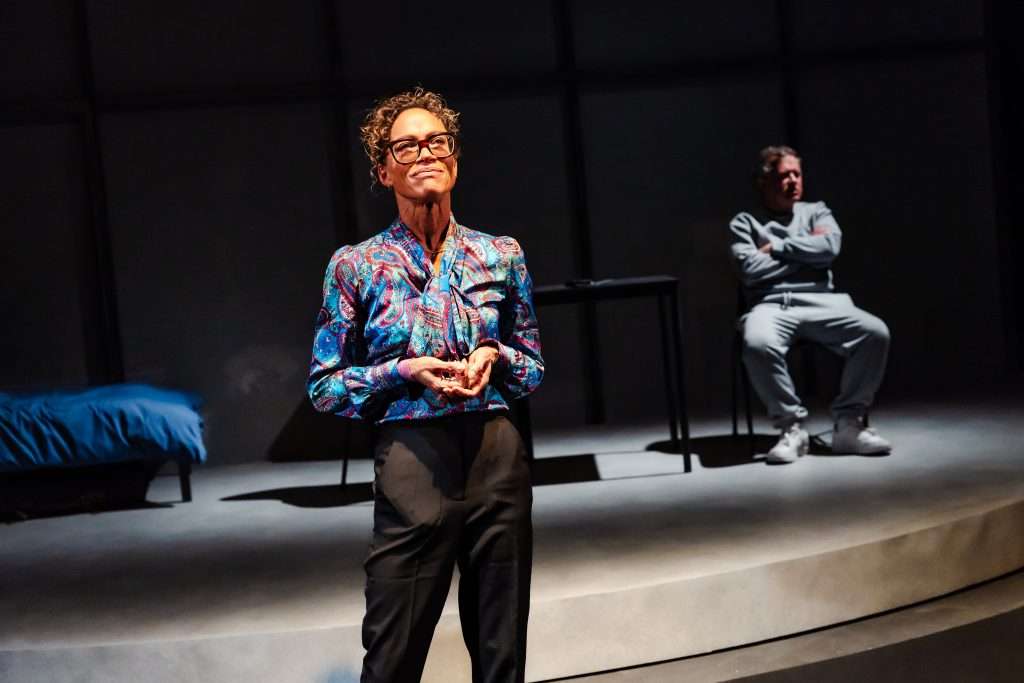
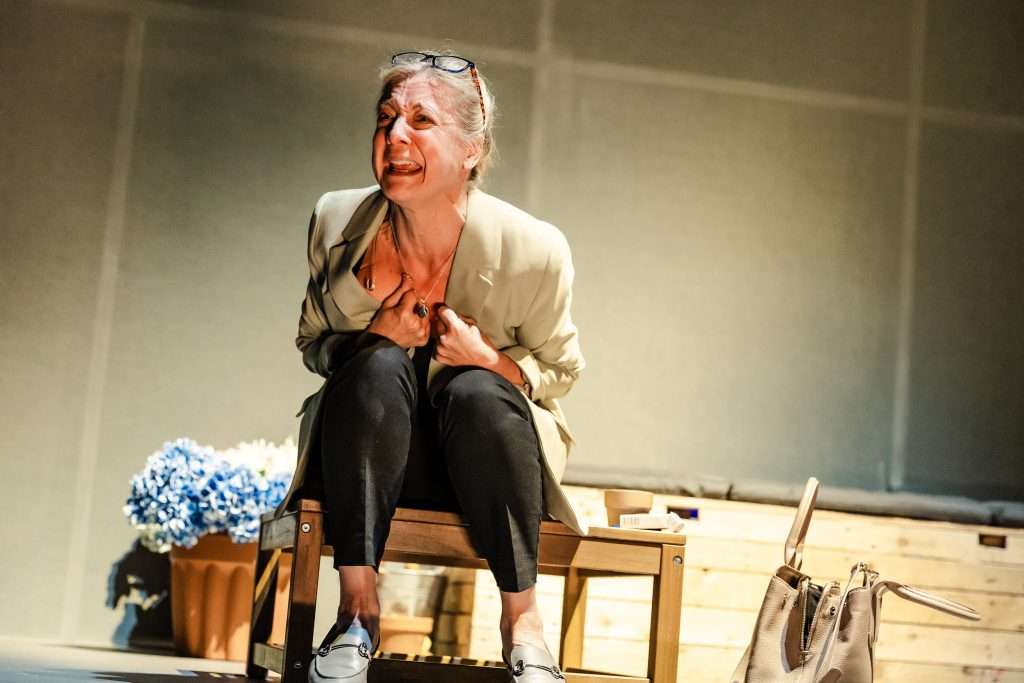
The bulk of Frozen is monologues from the three characters.
Kerrie Taylor plays Nancy, a grief-stricken, guilt-ridden mother trying to come to terms with the disappearance of her 10-year-old-daughter Rhona.
The serial killer who rapes, abducts and murders Rhona (and six other young girls over a 21-year period), Ralph, is played by James Bradshaw.
Indra Ové is Agnetha, a self-dubbed ‘psychiatric explorer’ working on a thesis about the effect of childhood trauma on the criminal brain.
The play spans many years, beginning when Rhona first went missing and encompassing the time before and during Ralph’s imprisonment.
Monologues and direct addresses give the audience no place to hide from the difficult subject matter and the high emotions of each character. We are not kept in the dark in any sense, as the house lights stay dimly lit throughout.
The lighting is crucial to scene changes when the set is either bathed in the warm sunshine of a spring garden or the glow of fond memories of family holidays, before transforming into the harsh white of prison cell strip lights or dimming to show the projector slides of an academic conference. These separate worlds of the three characters will soon collide, and the set design does a masterful job at illustrating this.
Alex Milledge’s set is superb. It consists of a revolving stage divided in half by a frame webbed in taut gauze. Nancy and Ralph will share this stage, acting on either side of the partition for the majority of the play. Lighting will enable the gauze to become gradually more transparent so that one character lurks in the background of the other. The pair subtly mirror actions, postures and words, too. And this production makes that blurry line between perpetrator and victim so unmistakably, visually apparent.
Regardless of our personal position on whether Ralph is primarily a victim, the set works perfectly with Laverty’s script by forcing us to realise we are always closer to evil than we would like to admit.
Despite this enforced confrontation of difficult truths, despite some disgustingly-titled pornographic videos, despite the talk of childhood neglect, of neural pathways, Cortisol and the Hippocampus, Frozen is punctuated by humour and a lot of tenderness.
One memorable moment, excellently acted by Kerrie Taylor, is when Nancy finally sees and holds her daughter’s remains, stored in cardboard filing boxes inside a coffin at the chapel of rest.
James Bradshaw also comes into his own in his terrifying reenactment of abusive prison guards and family members, and Inda Ové intelligently embodies a mix of professionalism and empathy, delivering lectures and conducting physical and mental assessments in the prison cell.
The acting is compelling throughout, yet it sometimes borders on the repetitive.
Tense confrontation and academic discourse make up a large part of the play, but the performance of the surrounding moments needs to be markedly different. This would give the same variety that the set and lighting changes do.
Overall, Frozen is an intense, important watch and has aged well, remaining a worthwhile addition to an ongoing debate.
Greenwich Theatre, Crooms Hill, Greenwich, SE10 8ES until 19th May. Times: Tues – Sat 7.30pm; Sun 5pm; Sat matinees 2.30pm. Admission: £31, £21.
Booking: https://greenwichtheatre.org.uk/


